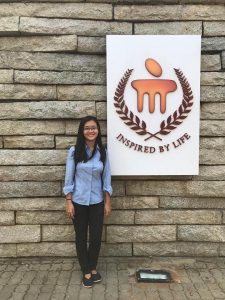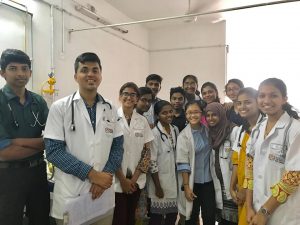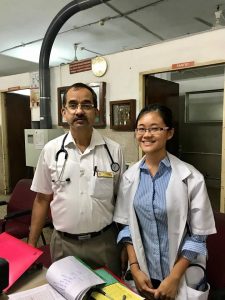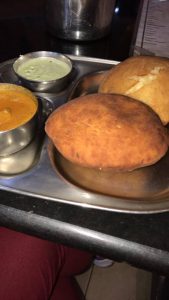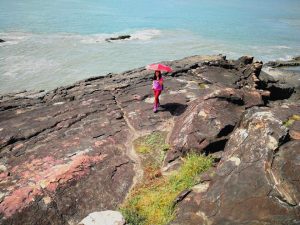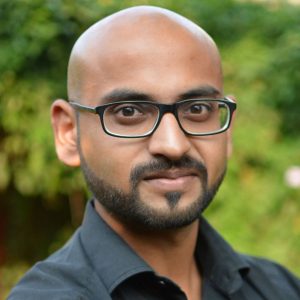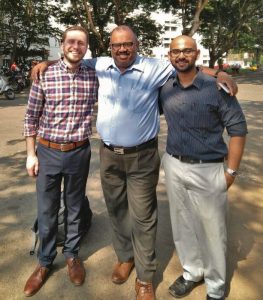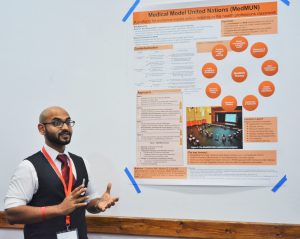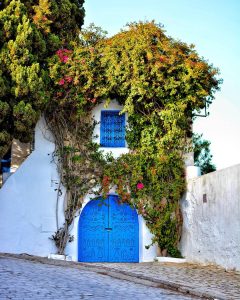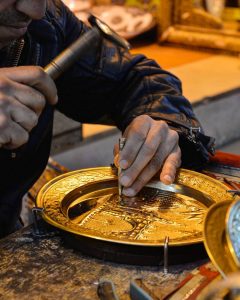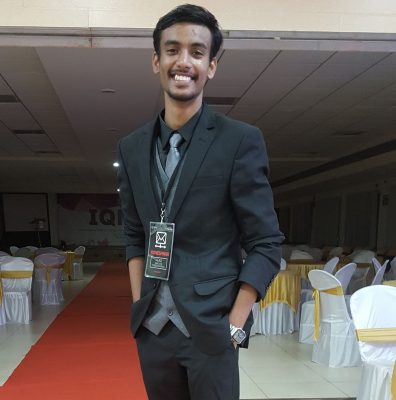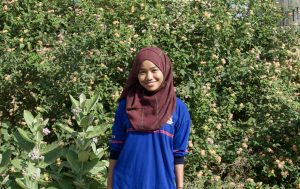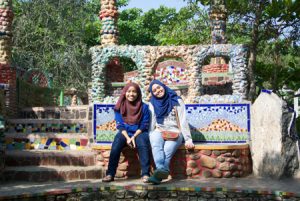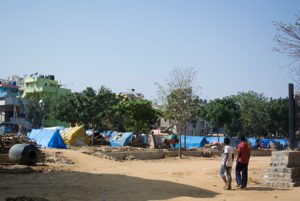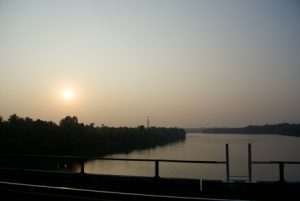Post by Yik Chin Low, GEMx global exchange student (and GEMx student ambassador!) from Penang Medical College (Malaysia) who recently completed her GEMx Exchange at Kasturba Medical College – Manipal in India.
I always want an opportunity to learn medical in India as I have lot of friends sharing their experience there with me and I found it could be challenging to me. Thus, I applied to do my elective in Kasturba Medical College in India under Gemx as it is well known as top 10 medical school in India over years.
When I first arrived, I met a lot of Malaysian as well. They were curious on my choice to do my elective here rather than other developed countries but I believe that India as an underdeveloped country is the place where you can experience different healthcare system that could not be obtained in the home medical school and it’s teaching hospital. Thus, I want to use this opportunity to attain experience in the management of uncommon diseases.
I am honored to be guided by Professor Rama Bhat. He taught me a lot during the ward rounds as well as in the clinic session. However, language is always a barrier to me and I am lucky enough to have the final year students who are willing to translate for me. I realize how common TB case in India and it becomes a taboo for them to even mention it and they called it Koch’ disease instead, same goes to leprosy and they only mention Hansen disease.
I have seen so many different cases that I never see in Malaysia and most of the patients presented to the hospital only when the symptoms get severe. I remember how surprise I was to see a really bad case of Rhematoid Arthritis with severe deformities of both upper and lower limb and the chik’s sign on Chikukunya patient that I never even heard of the name. Through the ward rounds, I was able to join the discussion on different cases presented . The students here are genuinely smart and taught me a lot as well. They are so friendly that they always helped to translate the language when I have difficulty understand the patients.
Most of the patient here are of low socioeconomic and some of them don’t even have money to pay for the big sum of medical expenses. It is heartbreaking to see the family members lying all around the floor besides the bed while taking care of their family.
I also learn how important of the ethical and professionalism and come to realize how patients are reliable on the doctors’ judgement that they put their life on your hand.
The culture in India is another thing that Iearn. For instance, there is no secret in neighbourhood in India, and news spread real fast. Also, when any car accidents happen, there will always be a big crowds on either side of the party even though none of them are related to the accident or the person involved. However, the good thing is whenever things happen, there are always someone there to lend you a hand.
I first came here with fear of hygience of the food here but after a week I fell in love with different types of Indian food here.
Furthermore, the visit to the museum of anatomy in KMC had indeed open my eyes and I can never find any more awesome museum that this one. It is really astonishing to actually witness with your eyes how the tumour cell can invade the body cell and the changes seen on the organ itself with your own eyes.
I also get an opportunity to travel around Mangalore. The beach in St Mary Island is breathtaking and I like how spontaneous the people here. They literally just dance on the boat while the music is on. It is pretty amusing.
I learn to self- improve on my inadequacy and work hard on my dream to be a great doctor because in the end, what you learn today might save a patient life another day.
Thanks so much to GEMx, I have this wonderful experience and It definitely going to help me a lot in my future. I have seen the medical care system in Ireland, Malaysia and India and it definitely give me a better understanding and I learn to appreciate what we have and know what to improve on.

